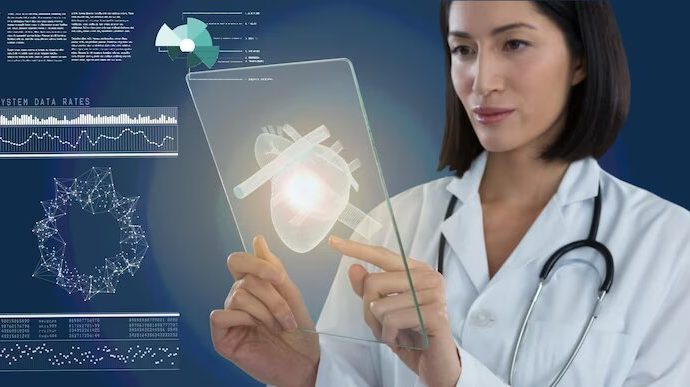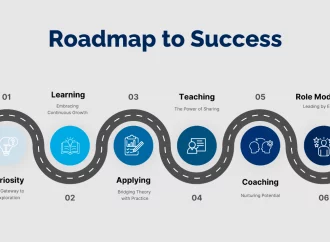As we move further into the 21st century, technology continues to revolutionize our world, and healthcare is no exception. From telemedicine to wearable tech, there’s a myriad of innovative ways that technology is changing the way we approach medical treatment. But perhaps one of the most exciting developments in recent years has been the rise
As we move further into the 21st century, technology continues to revolutionize our world, and healthcare is no exception. From telemedicine to wearable tech, there’s a myriad of innovative ways that technology is changing the way we approach medical treatment. But perhaps one of the most exciting developments in recent years has been the rise of artificial intelligence (AI) in healthcare. In this blog post, we’ll explore how AI is transforming medicine as we know it – from diagnosis and treatment to drug discovery and beyond – and what this means for patients and healthcare professionals alike. So buckle up – because the future of medicine is here, and it’s powered by AI!
How AI is Transforming Healthcare
Artificial intelligence (AI) is already beginning to transform healthcare, with the potential to greatly improve patient outcomes and efficiency of care delivery. Here are some examples of how AI is being used in healthcare today:
1. Diagnosis and treatment: AI is being used to develop more accurate and personalized diagnostic tools and treatments. For example, IBM Watson’s cognitive computing system is being used to help doctors identify the best cancer treatment options for individual patients based on their specific tumor characteristics.
2. Drug development: AI is helping pharmaceutical companies develop new drugs faster and more efficiently. By analyzing large data sets, AI can identify patterns that may indicate the effectiveness of a new drug for a particular condition.
3. Medical imaging: AI is being used to create more accurate and detailed medical images, such as X-rays, MRIs, and CT scans. This can help doctors detect diseases earlier and plan more effective treatments.
4. Patient monitoring: AI-powered wearable devices and sensors are being used to monitor patients’ vital signs and provide real-time alerts to doctors or caregivers if there are any changes that could indicate a health problem.
5. Administrative tasks: AI is taking on many mundane tasks in healthcare, such as scheduling appointments, verifying insurance coverage, and billing patients. This frees up time for clinicians to focus on more important tasks like providing direct patient care.
The Impact of AI on Medical Diagnostics
AI has the potential to revolutionize medical diagnostics. By analyzing large data sets, AI can identify patterns that may be indicators of disease. AI can also help doctors to better understand a patient’s condition by providing insights into how similar patients have responded to treatment in the past.
In the future, AI may play an even more important role in medical diagnostics. For example, AI-enabled “smart” devices could continuously monitor a patient’s health and flag early signs of illness. AI could also be used to develop personalized treatment plans based on a patient’s individual physiology and genetics.
Some experts believe that AI will eventually replace human doctors altogether. Others believe that AI will simply augment the work of human doctors, making them more efficient and effective. Either way, it is clear that AI will have a significant impact on medical diagnostics in the future.
The Impact of AI on Medical Research
Medical research is one of the most essential aspects of healthcare, as it helps to develop new treatments and cures for diseases. However, the process of medical research is often slow and expensive. This is where artificial intelligence (AI) can help.
AI can speed up the process of medical research by helping to identify patterns and trends in data much faster than human beings can. AI can also help to make medical research more cost-effective by reducing the need for human labor. In addition, AI can help to improve the accuracy of medical research by providing more reliable data.
Overall, AI is having a positive impact on medical research. Thanks to AI, new treatments and cures for diseases are being developed at a faster rate than ever before. In addition, AI is helping to make medical research more cost-effective and accurate.
The Impact of AI on Patient Care
The impact of AI on patient care is already evident. Hospitals are using AI to speed up the diagnosis of conditions and to find new treatments for diseases. AI is also being used to develop personalized medicine, which tailors treatments to individual patients.
AI is transforming healthcare by providing doctors with new tools for diagnosing and treating patients. For example, AI can be used to analyze medical images, such as X-rays and CT scans. This allows doctors to identify diseases earlier and to plan more effective treatments.
In addition, AI is being used to develop personalized medicine. This approach tailors treatment plans to the specific needs of individual patients. Personalized medicine has the potential to improve outcomes and reduce side effects.
Overall, AI is having a positive impact on patient care. Hospitals are using AI to speed up diagnosis and to find new treatments for diseases. In addition, personalized medicine is being developed that tailored treatments specifically for each patient’s needs.
The Future of AI in Healthcare
The future of AI in healthcare is shrouded in potential but fraught with uncertainty. But despite the challenges, many experts believe that AI will increasingly play a transformative role in healthcare, improving everything from diagnosis and treatment to patient engagement and care coordination.
One area where AI is already starting to make an impact is in the field of medical diagnosis. By analyzing large data sets, AI can help doctors identify patterns and relationships that would be otherwise hidden. This can lead to more accurate and earlier diagnosis of diseases, as well as better predictions of how diseases will progress.
AI is also being used to develop new treatments for a range of conditions. For example, by analyzing data from patients who have responded well to a particular treatment, AI can help identify which patients are likely to respond positively to that treatment – meaning that they can be given the right treatment sooner. In some cases, AI is even being used to develop entirely new treatments – such as personalized cancer vaccines.
But it’s not just about developing new treatments; AI can also help improve the delivery of existing treatments. For example, by analyzing data from large numbers of patients, AI can help doctors identify which patients are at risk of complications from a particular treatment – meaning that they can be monitored more closely or given alternative treatments.
AI can also play a role in improving patient engagement and care coordination. For example, by tracking a patient’s health data over time, AI-powered apps can flag up potential problems





















Leave a Comment
Your email address will not be published. Required fields are marked with *